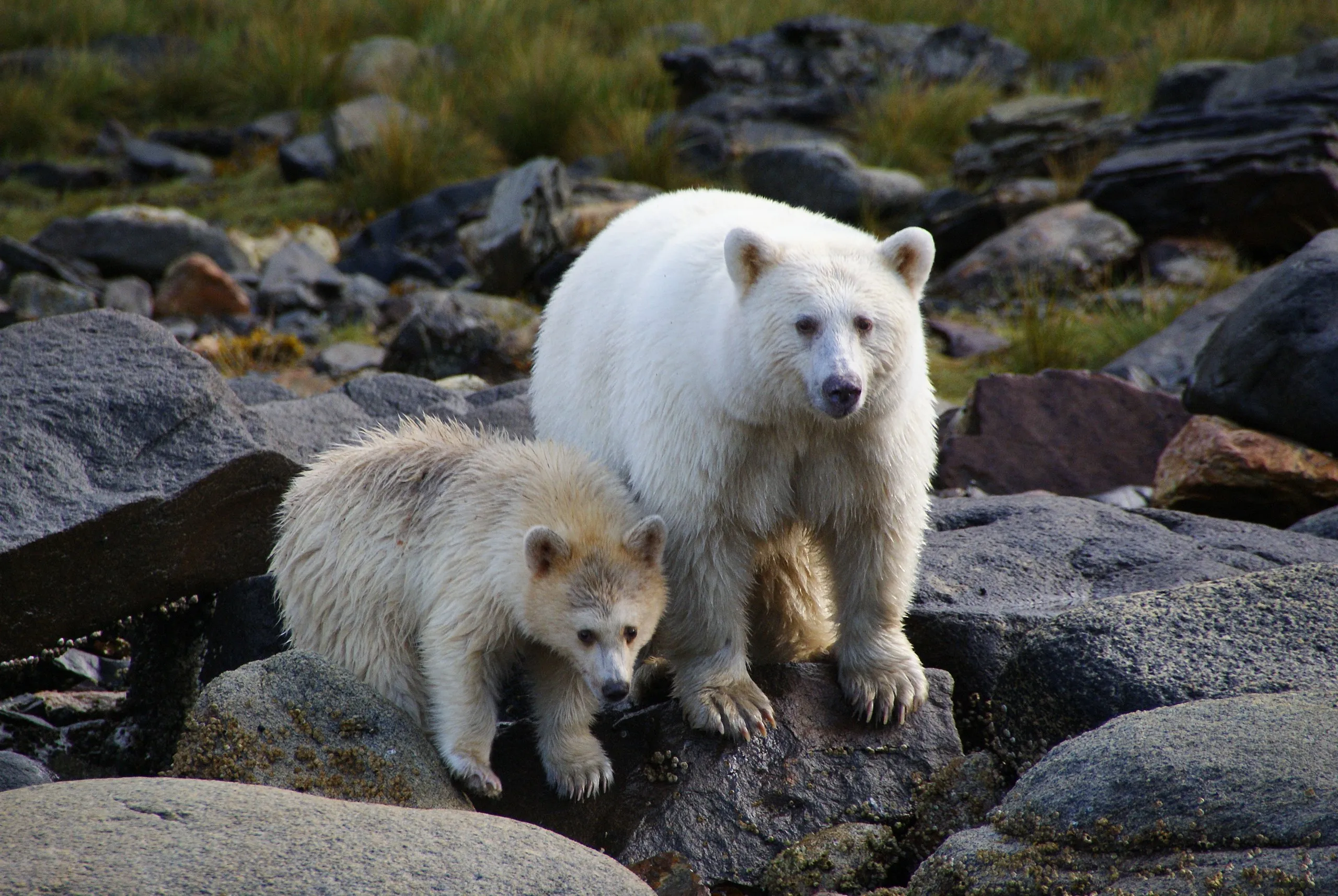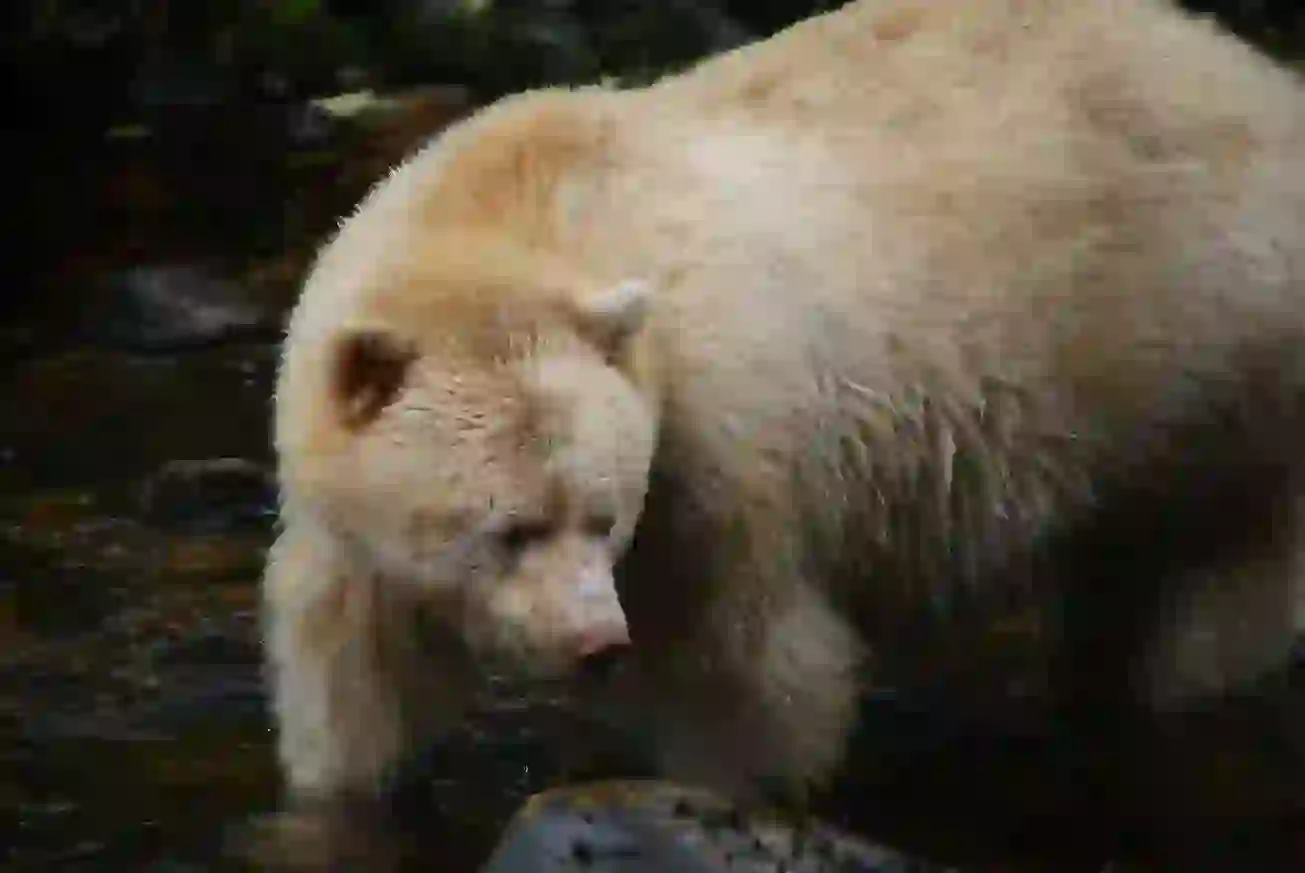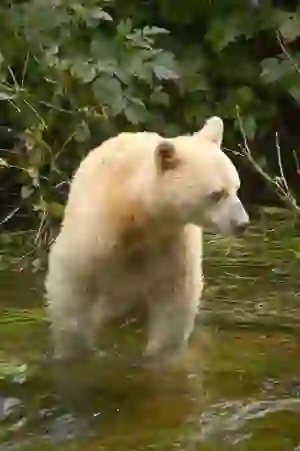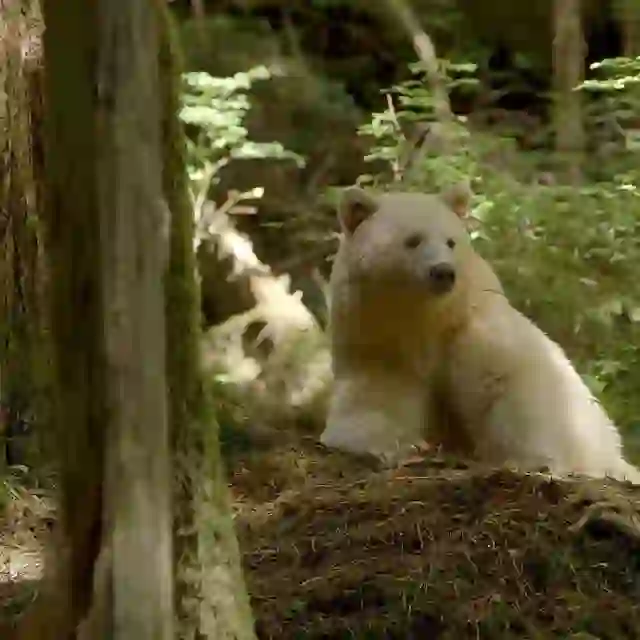
Kermode Bear
Kermode Bear
Kermode Bear
On the islands shrouded in dense forests off the coast of British Columbia, Canada, there lives a bear known as the 'spirit bear.' The Kermode bear, a subspecies of the American black bear, captivates people with its mystical appearance. Let's delve into the ecology of the Kermode bear, their environment, and their relationship with humans.
Kermode Bear Basic Infomation

| Property | Value |
|---|---|
| Scientific Name | Ursus americanus kermodei |
| Taxonomic Status | SUBSPECIES |
| Rank | SPECIES |
| Vernacular Names | Kermode bear |
| Kingdom | Animalia |
| Phylum | Chordata |
| Class | Mammalia |
| Order | Carnivora |
| Family | Ursidae |
| Genus | Ursus |
| Habitats | Coastal British Columbia, Canada |
| Conservation Status | Least Concern (IUCN 2023) |

Size
They measure about 3.9 to 5.9 feet (1.2 to 1.8 meters) in length, with males weighing around 198 to 400 pounds (90 to 180 kilograms). Females are smaller, weighing about 88 to 154 pounds (40 to 70 kilograms). They are similar in size to other black bears, but the existence of white individuals is what sets them apart.

Lifespan
They live for about 20 to 25 years in the wild, and even longer in captivity.

Distribution
They are found on the coast of British Columbia, Canada, particularly in the Great Bear Rainforest, the largest temperate rainforest in the world.
Kermode Bear Q&A

What kind of bear is the Kermode bear?
The Kermode bear is a subspecies of the American black bear, found on the coast of British Columbia, Canada.
While most Kermode bears have black fur, about 10% of them are born with white fur. The white furred individuals are called 'spirit bears' and have been revered by indigenous people. Kermode bears are omnivores, eating fruits, nuts, insects, fish, and sometimes even small mammals. They are good climbers and can often be seen eating fruit or resting high up in trees. They are also known to hibernate during the winter, spending the cold months in tree hollows or dens dug in the ground until spring arrives. The Kermode bear is sometimes also called the 'white black bear.'

Why are some Kermode bears white?
The white fur of Kermode bears is caused by a mutation in a gene called the 'MC1R gene.'
This gene controls the production of melanin, the pigment that gives color to hair. When a mutation occurs in the MC1R gene, melanin production is inhibited, resulting in white fur. Kermode bears with white fur are recessive, meaning that they inherit two copies of the mutated gene, one from each parent, for the white fur to be expressed. Therefore, the probability of a white Kermode bear being born is very low, about 10%.

[Quiz!] Are spirit bears albino?
No, spirit bears are not albino.
Albinism is a genetic condition where an animal is unable to produce any melanin. Albino animals have white fur all over their bodies and pink eyes. Spirit bears, on the other hand, can produce melanin. That is why their eyes are black. Also, their fur is not pure white, but has a slight cream color, indicating that they can produce a small amount of melanin.

[Quiz!] Why are spirit bears white?
The white fur of spirit bears is thought to be an adaptation to their environment.
They live in the temperate rainforests of the British Columbia coast, where it is often foggy and dim. The white fur is thought to act as camouflage, making them less visible in the forest. Spirit bears are also skilled at catching salmon. They wait in rivers, ambushing salmon. The white fur may make them less visible to the salmon in the water. In essence, the white fur of spirit bears is an advantageous trait that helps them survive.

[Quiz!] Are Kermode bears endangered?
The Kermode bear is listed as 'Least Concern' on the IUCN (International Union for Conservation of Nature) Red List.
This means they are not currently considered endangered. However, their population is not very large, estimated to be around 500 to 1,000 individuals. Their habitat is also threatened by deforestation and development. To protect Kermode bears, it is important to conserve their habitat and ensure their coexistence with humans.

Would you like to become a part of the 'Animalbook.jp'?
Turn your knowledge into Q&A and share it with the world. ※Publication will be activated after purchase. Let's share information together!
Kermode Bear Type of List

Efforts to Protect Kermode Bears
- Habitat conservation: Protecting forests and creating wildlife corridors to connect fragmented habitats
- Strengthening anti-poaching patrols: Increasing patrols and surveillance to apprehend poachers and prevent illegal trade
- Preventing human-wildlife conflict: Educating local communities about bear-aware practices and distributing bear spray
- Promoting ecotourism: Organizing tours to observe Kermode bears, generating income from tourists to fund conservation efforts, and raising awareness about the importance of conservation
Information
Congratulations! You are the first commenter!

Create Your Favorite List!
Kermode Bear
Save the animals you love! Build your own list to quickly revisit your favorites later.

Would you like to leave a comment?
※Please note: This is for the purchase of rights to post comments within the article.
Find Your Favorites!
Our shop offers a unique and attractive selection of goods themed around various animals.
Kermode Bear References
Kermode Bear Introduction of media used

Maximilian Helm from Dresden, Deutschland, CC BY 2.0, via Wikimedia Commons

Maximilian Helm from Dresden, Deutschland, CC BY 2.0, via Wikimedia Commons

The original uploader was Jackmont at English Wikipedia., CC BY-SA 3.0, via Wikimedia Commons

Jon Rawlinson, CC BY 2.0, via Wikimedia Commons

Help Enrich Our Animalbook.jp with Your Media!
We are constantly looking to expand and enrich our Animalbook.jp with amazing photos and videos of animals. If you have any media that you'd like to share, please contribute and help us showcase the beauty and diversity of the animal kingdom. Your submissions will be credited and featured in our encyclopedia, reaching a wide audience of animal lovers.


















